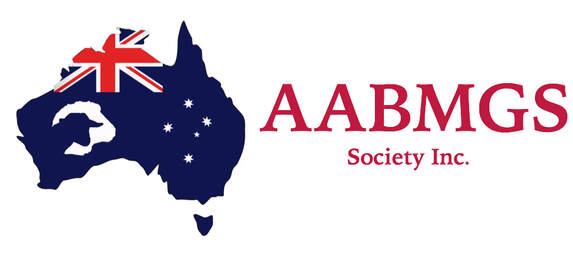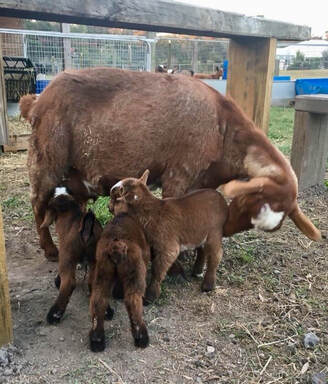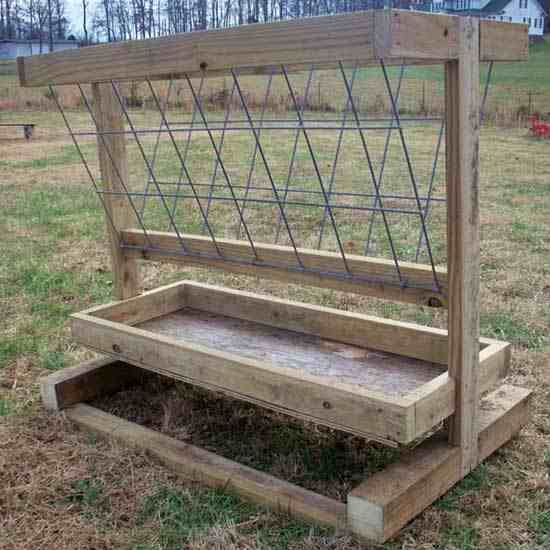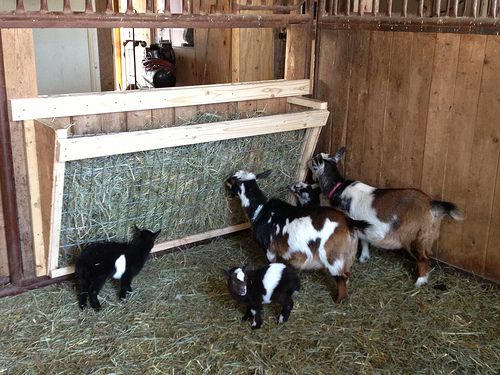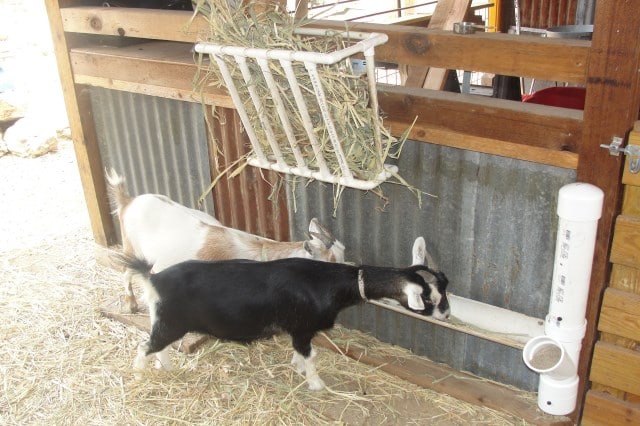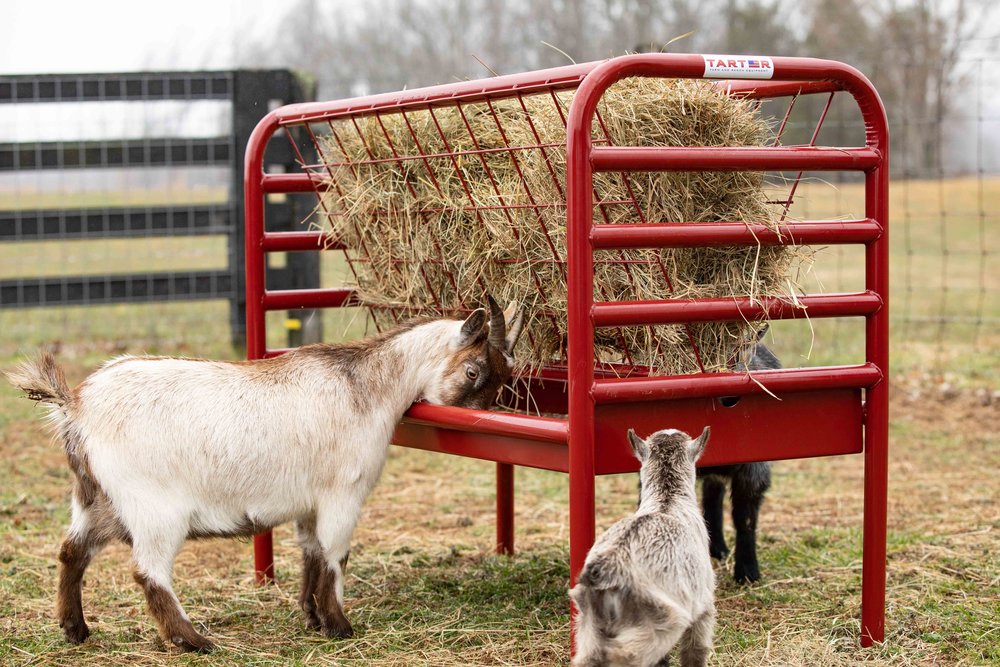|
If you are new to owning goats this guide will help you navigate the basic requirements goats need to be healthy and happy. It will also offer practical advise and information regarding goat management and legalities.
BASIC NEEDS OF GOATS:
A COMPANION – Goats are herd animals and rarely do well without another a goat as a companion. Single goats will fret for the herd, will vocalise loudly and often try to escape in search of their herd. They will be sad, unhappy and a lonely goat is more prone depression. For this reason, responsible goat breeders will not sell single goats to people who do not have at least one other goat already.
WEATHERPROOF SHELTER - goats hate the rain and are susceptible to pneumonia. For this reason, waterproof housing is fundamental to their wellbeing. It also gives them shade on a hot sunny day and somewhere to escape in windy weather. Shelters don’t need to be huge or elaborate, just big enough for your goats to stand or lay comfortably when fully grown and provide shelter from the elements. Goats should be housed on dry ground, as wet sodden ground can cause great discomfort and also lead to hoof infections. Keep this in mind when planning your goat’s shelter.
FENCING – for most goat owners it is impractical to allow goats to roam freely. A good-sized yard with adequate fencing is a must. Goats are notorious for testing fencing so starting out with strong fencing will get you and your goats off to a good start. Some goats are ‘jumpers’ so 1200mm high fences are ideal for miniature goats but 900mm high fencing will be sufficient for most herds. A strand of electric wire will control most jumpers and is a cost-effective option. Because goats like to rub, climb and lean on fences, woven wire is a better option than welded wire. Barb-wire fencing is not suitable for goats. Predators are another consideration when planning fencing. Domestic dogs have been known to pack with other domestic dogs and kill goats, so dog proof fencing is essential.
WATER – Each goat can drink up to 4 litres of water per day. An automatic water will ensure, fresh clean water is always on hand for your goats.
FEED - Most people believe goats can and will eat anything. This is simply not true. Goats are ruminants (meaning they have more than one stomach, goats actually have four stomachs) and have specific feed needs. In the wild, goats are browser, which means they will browse vegetation until they find the food that they need or want. When browsing is not available to them it is important they are fed food that will not upset their delicate rumen or make them unwell.
As a general rule, goats do well eating a simple diet of oaten chaff or pasture hay. They also enjoy kitchen scraps of carrots, apples, celery, capsicum, pumpkin, sweet potato but these foods should be given in moderation and only a few times per week. They also love sultanas and these make excellent treats and are great motivation when training.
Pregnant and lactating does have additional dietary requirements to whethers and bucks, as do growing kids.
If for any reason, you decide to change their diet, the new food needs to be introduced slowly over a few days. A sudden change in the diet can cause a digestive upset, resulting in scours, intense pain and potentially death.
IMPORTANT: Goats will rarely eat off the ground and if they do it increases their chances of getting worms, therefore a raised trough or feed dish where they cant contaminate with their feet is recommended.
BOTTLE FEEDING – When bottle feeding kids, it is necessary feed the right amount. Too much will cause health problems in later life, as will too little. Bottle bloat is also an area of concern and is often the result of giving in to a ‘supposedly’ hungry kid. A good general guideline for bottle feeding is 10-12% of body weight daily, divided into 4 daily feeds.
FEEDERS – Any feeder that holds hay off the ground, and allows easy access is appropriate for goats. See below for different and efficient designs.
BASIC NEEDS OF GOATS:
A COMPANION – Goats are herd animals and rarely do well without another a goat as a companion. Single goats will fret for the herd, will vocalise loudly and often try to escape in search of their herd. They will be sad, unhappy and a lonely goat is more prone depression. For this reason, responsible goat breeders will not sell single goats to people who do not have at least one other goat already.
WEATHERPROOF SHELTER - goats hate the rain and are susceptible to pneumonia. For this reason, waterproof housing is fundamental to their wellbeing. It also gives them shade on a hot sunny day and somewhere to escape in windy weather. Shelters don’t need to be huge or elaborate, just big enough for your goats to stand or lay comfortably when fully grown and provide shelter from the elements. Goats should be housed on dry ground, as wet sodden ground can cause great discomfort and also lead to hoof infections. Keep this in mind when planning your goat’s shelter.
FENCING – for most goat owners it is impractical to allow goats to roam freely. A good-sized yard with adequate fencing is a must. Goats are notorious for testing fencing so starting out with strong fencing will get you and your goats off to a good start. Some goats are ‘jumpers’ so 1200mm high fences are ideal for miniature goats but 900mm high fencing will be sufficient for most herds. A strand of electric wire will control most jumpers and is a cost-effective option. Because goats like to rub, climb and lean on fences, woven wire is a better option than welded wire. Barb-wire fencing is not suitable for goats. Predators are another consideration when planning fencing. Domestic dogs have been known to pack with other domestic dogs and kill goats, so dog proof fencing is essential.
WATER – Each goat can drink up to 4 litres of water per day. An automatic water will ensure, fresh clean water is always on hand for your goats.
FEED - Most people believe goats can and will eat anything. This is simply not true. Goats are ruminants (meaning they have more than one stomach, goats actually have four stomachs) and have specific feed needs. In the wild, goats are browser, which means they will browse vegetation until they find the food that they need or want. When browsing is not available to them it is important they are fed food that will not upset their delicate rumen or make them unwell.
As a general rule, goats do well eating a simple diet of oaten chaff or pasture hay. They also enjoy kitchen scraps of carrots, apples, celery, capsicum, pumpkin, sweet potato but these foods should be given in moderation and only a few times per week. They also love sultanas and these make excellent treats and are great motivation when training.
Pregnant and lactating does have additional dietary requirements to whethers and bucks, as do growing kids.
If for any reason, you decide to change their diet, the new food needs to be introduced slowly over a few days. A sudden change in the diet can cause a digestive upset, resulting in scours, intense pain and potentially death.
IMPORTANT: Goats will rarely eat off the ground and if they do it increases their chances of getting worms, therefore a raised trough or feed dish where they cant contaminate with their feet is recommended.
BOTTLE FEEDING – When bottle feeding kids, it is necessary feed the right amount. Too much will cause health problems in later life, as will too little. Bottle bloat is also an area of concern and is often the result of giving in to a ‘supposedly’ hungry kid. A good general guideline for bottle feeding is 10-12% of body weight daily, divided into 4 daily feeds.
FEEDERS – Any feeder that holds hay off the ground, and allows easy access is appropriate for goats. See below for different and efficient designs.
GENERAL CARE OF YOUR GOAT
To fully thrive and prevent illness, goats need the following care:
HOOF TRIMMING – Goat’s hooves continue to grow throughout their lives, much like our fingernails and unless they are trimmed or filed can cause discomfort and other ailments. Goat’s hooves need to be trimmed on a regular basis and usually once every 2-3 months, though in times of wet weather hooves need trimming every 6-8 weeks. Trimming hooves is pretty easy with a well-trained goat and special hoof trimmers are available online for about $30. If you are not comfortable undertaking this yourself, most vets will be able to do it for you, or you could seek out a breeder in your area.
To fully thrive and prevent illness, goats need the following care:
HOOF TRIMMING – Goat’s hooves continue to grow throughout their lives, much like our fingernails and unless they are trimmed or filed can cause discomfort and other ailments. Goat’s hooves need to be trimmed on a regular basis and usually once every 2-3 months, though in times of wet weather hooves need trimming every 6-8 weeks. Trimming hooves is pretty easy with a well-trained goat and special hoof trimmers are available online for about $30. If you are not comfortable undertaking this yourself, most vets will be able to do it for you, or you could seek out a breeder in your area.
WORMING: –
Goats may need to be wormed periodically. (Good management of pastures, stocking rates, nutrition and climate can also asist in the reduction in worming being required.)
Goat wormers come in a drench (administered orally) and are available from farm shops or produce suppliers. Not all wormers treat every worm, so to be sure you are treating for the correct worms
( if required ). It is a good idea to have a faecal count done.
This costs about $35 and will give you a good indication of the type of worms present and the number of worms (load) and is reported as ‘eggs per gram’ ie epg. With good care and diligence, worms need not become a problem.
The Worm-boss website has lots of detailed information and advice on how to manage and control worms in goats. For more details visit: http://www.wormboss.com.au/sheep-goats/programs/goats.php
Another great site is Wormcount, John offers a count with samples sent via mail at $35.00 for up to up to 10 goats ( payment after result's are received) if you contact him prior he will also send a kit to get you started wormcount.com.au
MINERAL LICKS: –
Goats have unique mineral requirements and therefore should have a mineral lick available to them at all times. We recommend Olsson's 2kg Goat Block or Hobby Farm Lick Block by io. Both of these are available from farm shops or feed suppliers. It is important to note, licks with high amounts of copper can be dangerous to goats as copper can cause toxicity which can be fatal.
CONSIDERATIONS TO MAKE BEFORE BUYING MINIATURE GOATS
Goats live for 12-15 years. When choosing to bring a goat into your family or farm, please consider this a long-term commitment.
WHICH BREED IS BEST FOR ME?
To determine the answer to this question, you first need to decide on why you want goats. Are your goats intended as family pets? Or do you want productive livestock? If so, do you desire meat, milk or fibre? Are you intending to breed or show?
PETS:-
Any miniature breed of goat will make great pets however intact males (bucks ) should only be kept for breeding puposes , Wethers ( castrated males) and Does are the better option.
BREEDING:-
Again, any of the Miniature breeds are appropriate for breeding though you will need to consider your end objective to decide which breed will suit. If breeding any miniature breed, it is recommended to purchase the very best animals you can afford and to purchase from a reputable, registered breeder.
CHOOSING A BREED
MINIATURE PET BREEDS
These include Australian Miniature, Pygmy, Miniature Anglo Nubian, Miniature Saanen, Elf, Miniature Boer and Nigerian Dwarf goats. For further information on each breed visit the miniature goat section (link) on AABMGS website.
DAIRY GOATS:-
If you want goats to provide for milk, then consider purchasing a dairy goat – British Alpines, Toggenburgs, Saanens and Anglo Nubians are large breeds of dairy goats. For miniature milking goats Nigerian Dwarf and Miniature Anglo Nubian would be the best breed for you.
MEAT GOATS:-
If you want to keep goats for meat, then Boer goats would be the ideal breed. Boer goats are bred and raised specifically for their meat. There are a small number of breeders developing a miniature Boer, still for meat, though suited for smaller properties.
DISBUDDED OR NOT ?
Most goats are born with horns, unless naturally polled (born without horns). It is common practise to prevent horn growth when the goat is around one week old. This is referred to as disbudding. Disbudding is the act of cauterizing the horn buds, to prevent the growth of horns. This is done for a number of reasons including the safety of handlers, especially children, from injury caused by goat’s horns, as well as for showing purposes. It is common to disbud dairy goats and miniature goats however it is common for fibre goats and Boer goats to remain horned.
Disbudding must be done by a person competent in the task, so you may wish to ask a fellow breeder or mentor, or a veterinarian to complete any disbudding on goats which you breed, or ask for them to teach you. The procedure is painful for the goat so it is recommended to talk to your vet about pain relief options.
VACCINATIONS:-
As with any pet or livestock, goats require vaccinations against some common diseases these are; Tetanus, Enterotoxaemia (Pulpy Kidney), Caseous lymphadenitis (cheesy gland), Black disease, Malignant oedema & Blackleg. Contact your local veterinary clinic for the right information regarding vaccinations. Using Glenvac 3-1 is generally recommend for Goats
LEGAL REQUIREMENTS OF OWNING GOATS
PROPERTY IDENTIFICATION NUMBER (PIC#)
A PIC is a unique eight-character code assigned by Local Land Services to properties with livestock. This system holds information identifying land including property names, locations and further details of the trading entity and the property owners or managers. A PIC number allows the movement of goats from one property to another. Getting a PIC number is easy. To find out more, contact Lands Services in your state or territory.
EAR TAGGING
Different states have different regulations in regards to ear tagging. A nationwide system was established in 2006 to standardise livestock identification in Australia, this is the National Livestock Identification System (NLIS). In general a goat should not be purchased or leave your property unless tagged, and have correct paperwork, such as a health declaration and Waybill.
*Victoria currently has an exemption for ear tagging*
NLIS REQUIREMENTS - STATE BY STATE (links)
Please refer to the following website for more information on NLIS in each state.
Information on New leg bands for mini breeds 2023
www.integritysystems.com.au/about/news--events/news/2022/goat-leg-band-option-approved-for-use/?fbclid=IwAR1o7DwgP_C0c5xqIKAjQNmA2mC92Fy0wAp2CkLcsCogvp5YejwmFCEHs6Y#.Y0VUTmANUqc.facebook
NSW - https://www.dpi.nsw.gov.au/animals-and-livestock/nlis/sheep-goats/guidelines/basic#:~:text=NLIS%20(Sheep%20%26%20Goats)%20was,of%20a%20mob%2Dbased%20system
VIC - victorian_goat_nlis_requirements.docx
QLD - https://www.nlis.com.au/NLIS-Information/
TAS - https://dpipwe.tas.gov.au/agriculture/animal-industries/identifying-selling-moving-livestock/buying-selling-sheep-and-goats/nlis-for-sheep-goats
WA - https://www.agric.wa.gov.au/livestock-biosecurity/nlis-and-identification-goats
SA - https://pir.sa.gov.au/biosecurity/animal_health/sheep/nlis_sheep_goats
NT - https://nt.gov.au/__data/assets/pdf_file/0008/200303/nlis-sheep-goats-in-the-nt.pdf
WHEN TO CALL THE VET
IMPORTANT: We recommend if you are in doubt about your goat’s health or welfare, call your vet without delay.
The first signs of concern are flat or listless, off food, runny or wet poo, keeping away from the herd, won’t get up, or stopped chewing cud.
Goats by nature are alert, curious, robust and active though, like all animals, they can become ill. Goats can go downhill quickly so it is prudent to know your goats and check them daily. Goats show pain by vocalizing (calling out) pawing at the ground, grinding their teeth and pressing their heads against something. If your goat is listless, flat, has wet droppings, is not eating, bloated or behaving oddly, make the call! Do not leave it until it is too late to contact your veterinarian.
Goats dropping can tell you a lot about their health. Healthy droppings look like little pellets. They should not clump together. If you see droppings that are mushy or clumped together then they have likely eaten something they shouldn’t have and likely have an upset stomach. If they have runny or watery droppings, they are at risk of dehydration and will need urgent vet attention.
Some household plants are poisonous to goats. Most goats instinctively know not to eat poisonous plants but there are some goats that don’t. To be safe, it is best to avoid growing these plants in your garden or if they are there already, restrict your goats’ access to them. The most common poisonous plants are: Oleander, Arum lilies, Avocado, Azalea, Bracken, Eucalyptus, Fireweed, potato’s, Lilac, Laurel, Peach, Red Clover, Rhubarb, Paterson's Curse. This list is not exhaustive. Please conduct your own research to be certain the plants at your property are safe for your goats.
Goats may need to be wormed periodically. (Good management of pastures, stocking rates, nutrition and climate can also asist in the reduction in worming being required.)
Goat wormers come in a drench (administered orally) and are available from farm shops or produce suppliers. Not all wormers treat every worm, so to be sure you are treating for the correct worms
( if required ). It is a good idea to have a faecal count done.
This costs about $35 and will give you a good indication of the type of worms present and the number of worms (load) and is reported as ‘eggs per gram’ ie epg. With good care and diligence, worms need not become a problem.
The Worm-boss website has lots of detailed information and advice on how to manage and control worms in goats. For more details visit: http://www.wormboss.com.au/sheep-goats/programs/goats.php
Another great site is Wormcount, John offers a count with samples sent via mail at $35.00 for up to up to 10 goats ( payment after result's are received) if you contact him prior he will also send a kit to get you started wormcount.com.au
MINERAL LICKS: –
Goats have unique mineral requirements and therefore should have a mineral lick available to them at all times. We recommend Olsson's 2kg Goat Block or Hobby Farm Lick Block by io. Both of these are available from farm shops or feed suppliers. It is important to note, licks with high amounts of copper can be dangerous to goats as copper can cause toxicity which can be fatal.
CONSIDERATIONS TO MAKE BEFORE BUYING MINIATURE GOATS
Goats live for 12-15 years. When choosing to bring a goat into your family or farm, please consider this a long-term commitment.
WHICH BREED IS BEST FOR ME?
To determine the answer to this question, you first need to decide on why you want goats. Are your goats intended as family pets? Or do you want productive livestock? If so, do you desire meat, milk or fibre? Are you intending to breed or show?
PETS:-
Any miniature breed of goat will make great pets however intact males (bucks ) should only be kept for breeding puposes , Wethers ( castrated males) and Does are the better option.
BREEDING:-
Again, any of the Miniature breeds are appropriate for breeding though you will need to consider your end objective to decide which breed will suit. If breeding any miniature breed, it is recommended to purchase the very best animals you can afford and to purchase from a reputable, registered breeder.
CHOOSING A BREED
MINIATURE PET BREEDS
These include Australian Miniature, Pygmy, Miniature Anglo Nubian, Miniature Saanen, Elf, Miniature Boer and Nigerian Dwarf goats. For further information on each breed visit the miniature goat section (link) on AABMGS website.
DAIRY GOATS:-
If you want goats to provide for milk, then consider purchasing a dairy goat – British Alpines, Toggenburgs, Saanens and Anglo Nubians are large breeds of dairy goats. For miniature milking goats Nigerian Dwarf and Miniature Anglo Nubian would be the best breed for you.
MEAT GOATS:-
If you want to keep goats for meat, then Boer goats would be the ideal breed. Boer goats are bred and raised specifically for their meat. There are a small number of breeders developing a miniature Boer, still for meat, though suited for smaller properties.
DISBUDDED OR NOT ?
Most goats are born with horns, unless naturally polled (born without horns). It is common practise to prevent horn growth when the goat is around one week old. This is referred to as disbudding. Disbudding is the act of cauterizing the horn buds, to prevent the growth of horns. This is done for a number of reasons including the safety of handlers, especially children, from injury caused by goat’s horns, as well as for showing purposes. It is common to disbud dairy goats and miniature goats however it is common for fibre goats and Boer goats to remain horned.
Disbudding must be done by a person competent in the task, so you may wish to ask a fellow breeder or mentor, or a veterinarian to complete any disbudding on goats which you breed, or ask for them to teach you. The procedure is painful for the goat so it is recommended to talk to your vet about pain relief options.
VACCINATIONS:-
As with any pet or livestock, goats require vaccinations against some common diseases these are; Tetanus, Enterotoxaemia (Pulpy Kidney), Caseous lymphadenitis (cheesy gland), Black disease, Malignant oedema & Blackleg. Contact your local veterinary clinic for the right information regarding vaccinations. Using Glenvac 3-1 is generally recommend for Goats
LEGAL REQUIREMENTS OF OWNING GOATS
PROPERTY IDENTIFICATION NUMBER (PIC#)
A PIC is a unique eight-character code assigned by Local Land Services to properties with livestock. This system holds information identifying land including property names, locations and further details of the trading entity and the property owners or managers. A PIC number allows the movement of goats from one property to another. Getting a PIC number is easy. To find out more, contact Lands Services in your state or territory.
EAR TAGGING
Different states have different regulations in regards to ear tagging. A nationwide system was established in 2006 to standardise livestock identification in Australia, this is the National Livestock Identification System (NLIS). In general a goat should not be purchased or leave your property unless tagged, and have correct paperwork, such as a health declaration and Waybill.
*Victoria currently has an exemption for ear tagging*
NLIS REQUIREMENTS - STATE BY STATE (links)
Please refer to the following website for more information on NLIS in each state.
Information on New leg bands for mini breeds 2023
www.integritysystems.com.au/about/news--events/news/2022/goat-leg-band-option-approved-for-use/?fbclid=IwAR1o7DwgP_C0c5xqIKAjQNmA2mC92Fy0wAp2CkLcsCogvp5YejwmFCEHs6Y#.Y0VUTmANUqc.facebook
NSW - https://www.dpi.nsw.gov.au/animals-and-livestock/nlis/sheep-goats/guidelines/basic#:~:text=NLIS%20(Sheep%20%26%20Goats)%20was,of%20a%20mob%2Dbased%20system
VIC - victorian_goat_nlis_requirements.docx
QLD - https://www.nlis.com.au/NLIS-Information/
TAS - https://dpipwe.tas.gov.au/agriculture/animal-industries/identifying-selling-moving-livestock/buying-selling-sheep-and-goats/nlis-for-sheep-goats
WA - https://www.agric.wa.gov.au/livestock-biosecurity/nlis-and-identification-goats
SA - https://pir.sa.gov.au/biosecurity/animal_health/sheep/nlis_sheep_goats
NT - https://nt.gov.au/__data/assets/pdf_file/0008/200303/nlis-sheep-goats-in-the-nt.pdf
WHEN TO CALL THE VET
IMPORTANT: We recommend if you are in doubt about your goat’s health or welfare, call your vet without delay.
The first signs of concern are flat or listless, off food, runny or wet poo, keeping away from the herd, won’t get up, or stopped chewing cud.
Goats by nature are alert, curious, robust and active though, like all animals, they can become ill. Goats can go downhill quickly so it is prudent to know your goats and check them daily. Goats show pain by vocalizing (calling out) pawing at the ground, grinding their teeth and pressing their heads against something. If your goat is listless, flat, has wet droppings, is not eating, bloated or behaving oddly, make the call! Do not leave it until it is too late to contact your veterinarian.
Goats dropping can tell you a lot about their health. Healthy droppings look like little pellets. They should not clump together. If you see droppings that are mushy or clumped together then they have likely eaten something they shouldn’t have and likely have an upset stomach. If they have runny or watery droppings, they are at risk of dehydration and will need urgent vet attention.
Some household plants are poisonous to goats. Most goats instinctively know not to eat poisonous plants but there are some goats that don’t. To be safe, it is best to avoid growing these plants in your garden or if they are there already, restrict your goats’ access to them. The most common poisonous plants are: Oleander, Arum lilies, Avocado, Azalea, Bracken, Eucalyptus, Fireweed, potato’s, Lilac, Laurel, Peach, Red Clover, Rhubarb, Paterson's Curse. This list is not exhaustive. Please conduct your own research to be certain the plants at your property are safe for your goats.
Join the AABMGS for advice, information and support
Australian All Breeds of Miniature Goat and Sheep Society Inc.
